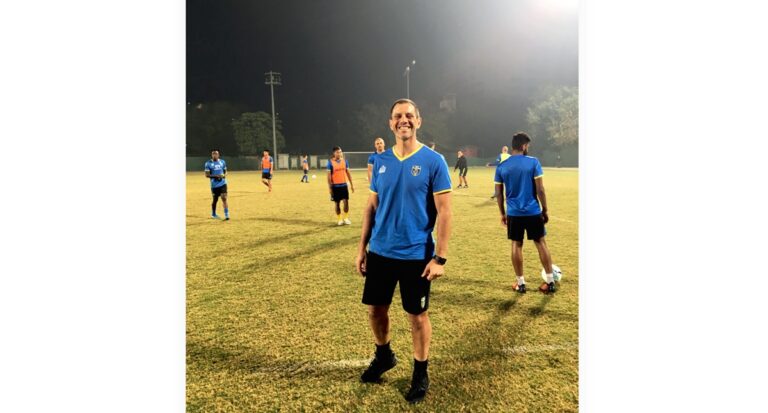David Richardson is a British fitness trainer with 30 years’ experience working with top sportsmen and elite athletes. He was one of the first fitness coaches in professional football and has travelled the world for 26 seasons, supported judokas at two Olympic Games, worked closely with boxers and most recently coached a top-flight football club in India.
With a packed season of sporting events including UEFA EURO 2024 and the Olympic and Paralympic Games, David will explain how athletes are coping with the heat and offer the public tips on how to stay hydrated as the temperatures rise.
The importance of staying hydrated in the heat
“We lose fluid every day through sweat – 500ml a day when resting in cool conditions, up to 10 litres a day when exercising in the heat, which is why games and major sporting events in the middle of summer are so tough for athletes,” David says.
Being dehydrated can affect your flexibility, speed, endurance, muscles and mental function and can even make you feel unwell.
“You don’t need to lose a lot of fluid to affect your performance. A reduced performance level due to dehydration can have a big impact on the whole team in terms of delayed physical performance and decision-making.”
In professional sports, players are closely monitored to ensure they are adequately hydrated before a match.
“We weigh the players before the match and again when they come back after a 20-minute warm-up. If they’ve lost one kilo, we give them one litre of water with electrolytes before they come back on.”
Electrolytes are minerals such as sodium, calcium, and potassium that are essential for many important functions in the body, such as regulating muscle contractions and helping the body retain fluids. In high temperatures, electrolytes are lost through excessive sweating and urination, resulting in symptoms such as fatigue, headaches, nausea, changes in blood pressure, muscle cramps, and lack of energy. That’s why it’s important to drink water in high temperatures, but drinking too much water can cause electrolyte imbalances, so athletes turn to salt and sugar in pill form for supplementation.
David explains that in the heat of competition, athletes can become so focused on their performance that they forget to stay hydrated.
“You’ve been training since you were eight years old all the way up to Olympic level, and then on competition day, if you get a cramp because you’re not hydrating properly, that’s it. You’ve wasted precious time. That’s how important hydration is.”
Learn from the Pros: How to Cope with the Heat
While professional athletes and Olympians may seem different to the average person, David shared some tips the rest of us can use to stay hydrated in the summer heat.
Hydrate at night: “Make sure your room is well ventilated. Use a fan in the room. Keep water next to your bed. Drink a glass of water when you wake up. Sweating during the night will cause you to lose fluids.” Prepare for the next day: “When you pack your bag, make sure you have plenty of water. Don’t pack a small sports bottle, pack at least 2 liters of water. When it’s hot, you need to drink more than you think!” Avoid alcohol: “Think carefully about whether or not to drink alcohol. Alcohol has a diuretic effect and can make you urinate more often, which can make dehydration worse.” Check your hydration levels throughout the day: “When you urinate, check the color. It should be clear. If it’s light yellow or dark, you need to drink more fluids.” Consider replacing lost electrolytes. “If you sweat a lot in the heat and have headaches and fatigue, in addition to drinking water, consider drinking rehydration sachets, which are widely available at pharmacies.”
Thekla Huth, from the Federal Health Education Centre in Germany, the host country of the UEFA EURO 2024 Championships, echoes David’s advice. “Staying hydrated in the heat is important not just for athletes, but for all of us. Prioritise hydration this summer to avoid heatstroke,” she says. She recommends focusing on simple steps like drinking two to three litres of water throughout the day in hot weather. “Drink a glass every hour, whether you’re thirsty or not. Don’t overload your stomach and avoid ice-cold drinks and drinks with alcohol or sugar.”


